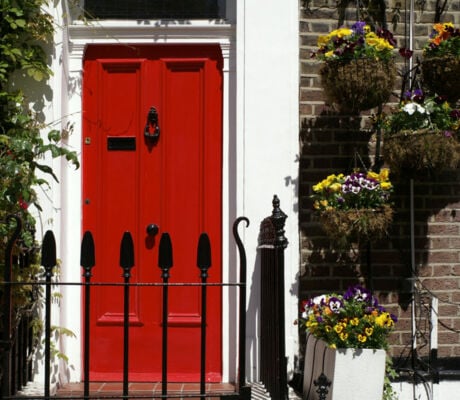Middle Eastern investors represent a significant force in high-value European property investment, particularly in the UK. Although Brexit and other economic factors may have influenced investment strategies, Europe and the UK specifically is still considered a desirable spot to invest both commercially and residentially.
However—as Enness has discovered during a decade of working with high net worth Middle Eastern nationals—these individuals have many misconceptions regarding their ability to invest in the UK. We’ve compiled the following list to address these misconceptions: if you have further questions, let us know, and we will be happy to advise.
Can Middle Eastern investors buy property in the UK?
Yes. Whether you are resident in the Middle East or are currently living in Europe you can buy property in the UK or the continent more generally, you can buy property in the UK.
Do foreign buyers have to purchase a certain type of property?
No, you are free to buy any type of property. Whether you prefer a high-rise luxury apartment, a country estate, a London townhouse or a buy-to-let portfolio, there is a range of options.
Can Middle Eastern investors get large mortgages?
Yes, although lender requirements, application processes and the mortgage products available will vary depending on your circumstances.
Is it possible to get a mortgage before finding a property?
It’s certainly worth considering your options early on; a conversation with a broker will let you know what you could expect to borrow, so you could get an ‘agreement in principle’. However, you will need to have found a property before you can actually secure a mortgage.
Do Middle Eastern buyers need a UK bank account to get a mortgage?
Not as such, but it can be useful. Some banks may require you to have one by the time the mortgage is placed, but your broker can guide you when it comes to setting this up. This isn’t something to be concerned about: not having one to begin with won’t stop you from being able to secure a large mortgage.
Is it necessary to place assets under management (AUM) with a lender to secure a UK mortgage?
No. Many Middle Eastern clients are used to talking to banks who absolutely require AUM as a condition of lending, and therefore think this is unavoidable. However, we work with many private lenders who can offer mortgages without taking AUM.
Do Middle Eastern buyers need to come to London to get a mortgage?
No, you do not need to be in London to secure a mortgage in the UK. Enness has representative offices in Dubai’s DIFC and Monaco, and can also work through Family Offices and other professional advisers. With the right team of advisers in place, a property transaction be handled on your behalf.
Is it necessary to have the UK or European passport?
No, passport holders from around the world can secure a UK mortgage, although this will generally require the help of a broker.
Do Middle Eastern investors need to have lived in Europe?
No, this is not a requirement. If you are securing a residential mortgage, we may need to demonstrate to the lender that you won’t be renting the property out, as this would then require a buy-to-let mortgage.
Do Middle Eastern buyers have to provide proof of income?
In order to secure a mortgage, you need to be able to demonstrate that you have sufficient income to service a mortgage, plus a margin for interest rates, and the ultimate means to pay off the loan entirely.
However, this can be difficult, because Middle Eastern borrowers may not have the same documents as are generally required by Western banks. In an ideal world, borrowers would have full audited accounts from a UK registered accountant. However, this is extremely unusual for Middle Eastern individuals. For example, a business owner in Dubai may not have a ‘tax return’ as traditionally asked for by lenders in London.
But there are ways around this. A broker is invaluable here, as we can work with you to find ways of proving your income to the lender to satisfy their requirements.
Can so-called ‘high risk nationalities’ get European mortgages?
Yes. Nationals from certain countries, such as Iran and Saudi Arabia, will certainly find more limitations as they can be considered ‘high risk’ by lenders. This increased regulatory burden means a smaller number of lenders willing to work on such cases means options are more limited. Ultimately, however, it’s not the nationality that is the problem; lenders are looking to understand your source of wealth.
Can a Middle Eastern business owner get a mortgage?
Yes. Whilst this is more complicated—if you are self-employed, for example—it can definitely be done. Many Middle Eastern business are run in a different manner to the UK, and some banks can find the way they operate confusing. Such clients may not have standard documents usually asked for by Western banks. However, using a broker circumvents this obstacle, as we know how to present documents and what the banks will need to see.
Is Sharia-compliant finance available in the UK and Europe?
Although there are fewer options available, Sharia-compliant finance is certainly a possibility in Europe. There are a number of well-established options in the UK, and France is actively trying to establish Paris as a western centre for Islamic finance.
What Middle Eastern clients buying in the UK should know:
- The more information you are able to provide, the easier the application process will be. We understand your privacy concerns, but it’s important to remember that Enness’ role as a broker is not to judge your profile; it’s to present it in the best possible light, and being properly informed allows us to do this.
- If your profile means you are considered high risk, there could be more stringent due diligence requirements.
- These mortgages typically take longer to process due to the extra due diligence required, which can be frustrating if you are under pressure from an estate agent to exchange or complete. A broker is your best bet for a fast resolution.





